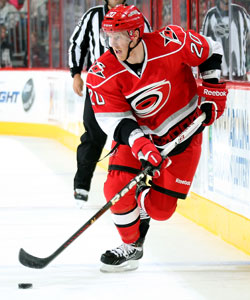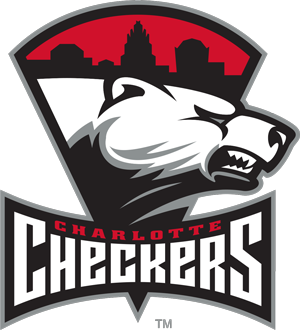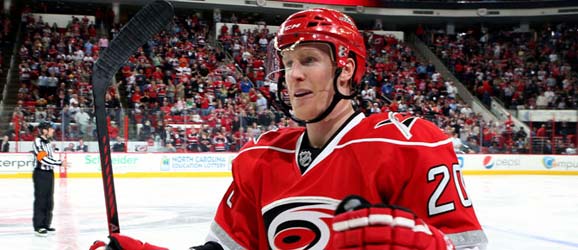Playing a total of 32 games at the highest level was uncharted territory for Nash, a 23-year-old, third-year pro who had a brief five-game debut with Carolina last season. Included in his nine points were a few standout performances, including his first NHL goal against Florida on March 2 – part of a three-point night – and a two goal outing at Washington less than two weeks later.
Those were the continuation of an offensive breakout seen over the previous month in Charlotte, in which the 2007 first-round pick who had contributed mostly on the defensive end to that point began to realize his scoring potential. After scoring 22 points (9g, 13a) in his last 18 regular-season games, Nash set AHL career highs in assists (24) and points (37) despite playing a career-low 51 games.

While Nash had shown flashes of his scoring ability in his first two seasons with Charlotte, he had never approached the kind of consistency that led to his recall. From Jan. 4 on, he recorded at least one point in all but five of those 18 games.
His last three regular-season games with the Checkers, one of which came on a brief one-game return from Carolina that did not cause him to miss an NHL game, were the most dominant. He produced eight points in that stretch (5g, 3a), including a four-point outing on Feb. 16 that tied the franchise record for most points in a single game.
When asked what changed for Nash in 2013, both the player and his coach had the same answer – confidence.
“I think I just got more confident with the puck,” said Nash. “The more you have it the less the other team can have it, so I just stopped being so scared to hold on to it and made sure I wasn’t just throwing it away.”
“Now he’ll hang on to the puck and try to beat guys one-on-one,” said Daniels. “There’s no panic with the puck, and now you’re seeing why he was a first-round pick.”
Back with the Checkers now that the Hurricanes’ season has concluded, Nash is a critical piece to the team’s playoff lineup. His two-way play allows him to anchor a scoring line with the likes of Zach Boychuk, who he sprung for a breakaway goal in Game 2 against Oklahoma City. He’s also able to kill penalties and match up with the opposition’s top players when necessary, which Daniels said lightens the load on Brett Sutter.
Since coming back, he’s also been reunited with brother Brendon, a defenseman who the Checkers acquired via a loan deal while Riley was still in the NHL. The two played together for three years at Cornell University but had become resigned to the fact that they were now more likely to see each other on opposite ends of the ice, as they did for the first time when San Antonio visited Charlotte in February.
“It was a bang-bang thing,” said Riley of developments that led to Brendon’s arrival on April 9. “Someone on the staff (in Carolina) told me one night that it was a possibility, and then the next day it happened.”
With Brendon still sidelined from an injury suffered in his Checkers debut on April 11, the two have been able to practice but not play together. It’s an opportunity they look forward to getting soon.
“It’s a pretty natural thing,” said Riley.
A restricted free agent this summer, Nash will attempt to play even more NHL games next season as the Hurricanes work to further restructure their lineup. That could present a prime opportunity for him and a handful of other Checkers who will look to use this year’s postseason as a springboard to that success.
Should that occur, Nash, thanks to his extended run this season, now has a better idea of what to expect.
“You get to really see what you do well and what your weaknesses are, so it was a good learning experience,” he said. “The NHL is a grind. You’re not going to be dominant or the best player on the ice every night, so you just have to do what you can.”





